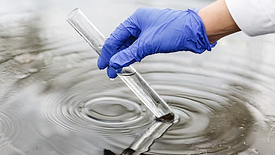Home » Keywords: » wastewater
Items Tagged with 'wastewater'
ARTICLES
Water management systems a key element in snack, bakery success
Efficient delivery and use of water, management and treatment of wastewater among goals
August 15, 2018
Never miss the latest news and trends driving the food safety industry
eNewsletter | Website | eMagazine
JOIN TODAY!Copyright ©2025. All Rights Reserved BNP Media.
Design, CMS, Hosting & Web Development :: ePublishing








